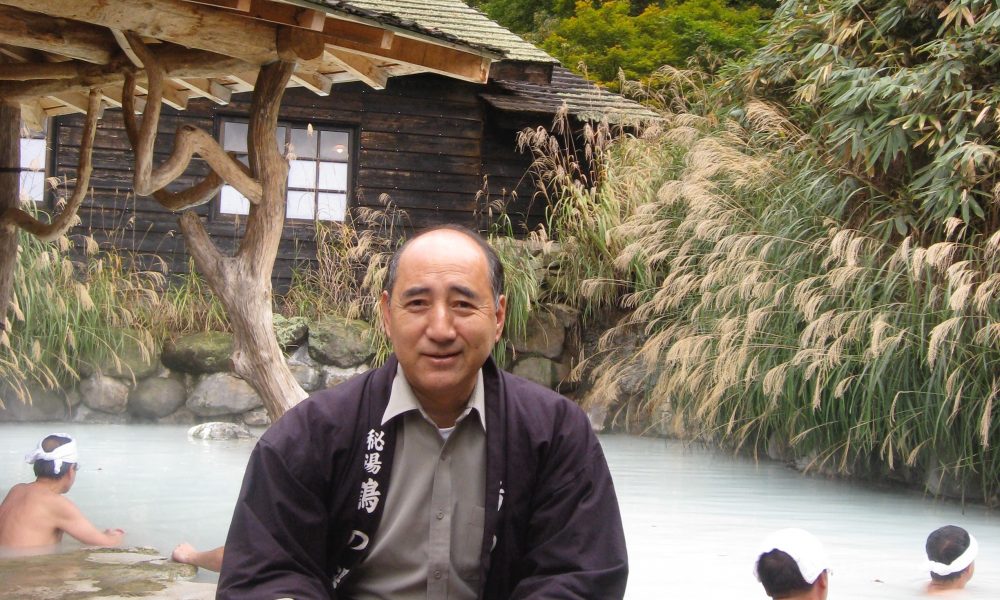
Words to Live by: Tsurunoyu onsen ryokan owner Kazushi Sato
Interview by Judit Kawaguchi
Thanks to my wife, we have succeeded. No matter how tough life was, she stayed strong. We climbed the mountains every day to look for mushrooms and sansai (mountain vegetables) to serve our guests. We did this not only because such vegetables are delicious and local, but also because they were free. Back then, we experienced years when we wouldn’t see a guest for six months. But my wife kept on picking and smiling every day.
Nature is perfect; all we need to do is copy her. The Japanese carpenters who built the Horyu-ji Temple in Nara Prefecture — the world’s oldest surviving wooden structure, dating back to 607 — understood wood expansion and shrinking, which they considered when engineering the building’s construction. In the forest, the side of a tree that faces north is always the strongest, so when they built the temple they used the wood that faced north on the temple’s northern side. No wonder it’s still standing tall.
As long as the toilets are comfortable, people are happy — even in nomadic conditions. I first saw the Washlet (Japanese shower toilet) in the 1980s, and I immediately bought one for every restroom at the ryokan. I knew that as long as people had decent, clean toilets, they’d be happy staying in 100-year-old rooms.
Setting the right price helps create the perfect atmosphere. At an expensive place, it is difficult to really relax. Fifteen years ago, we were getting quite busy and we were advised to double our prices. But we refused. Our buildings are fantastic, but they were once accommodation for farmers. They are simple and made from inexpensive local wood. Our prices must match the quality of our buildings. Also, an onsen is a health spa and healing waters should be available to everyone, so it’s better that it’s not expensive.
Some laws are like instructions on how to destroy tradition. Japanese fire-prevention laws strictly forbid the construction of wooden hotels or ryokan. This is one reason why traditional Japanese architecture is disappearing. We exist because our buildings are older than the law, so it doesn’t apply to us. But any wooden ryokan built or renovated after the laws were created had to have its walls covered with mortar, supposedly to protect the structure from fire. If we could peel off these monstrosities, Japan would look more beautiful. We have smoke detectors and sprinklers now, yet the laws have not been amended.
The key to success — even globally — is to express local flavor as strongly as possible. Local food and customs make a trip enjoyable. Akita has it all: secret onsens tucked away in the mountains, Akita bijin (beautiful women) with skin like fresh snow, minyō folk songs, great sake, lots of good pickles, mushrooms and bears.
The forest is a great food basket. We pick mountain grapes and akebi (chocolate vine) fruit, and collect chestnuts and wild mushrooms to serve our guests. In the spring, we search for sansai. The air is delicious and moist and we get to share it with everyone, including the bears.
A country needs all kinds of people with all kinds of jobs. Japan is full of jobs that nobody wants. There’s work available along rivers, such as cleaning and fishing, and at ryokan, but it seems that everyone wants to live in Tokyo and sit at a desk.
Imperfections keep things from getting boring. The doors of our futon cabinets are made from chestnut tree. Each door is different because the grain of the wood is unique to each, and no two doors are perfectly aligned. Expensive ryokan and hotels would not allow such imperfections. They think of them as a drop in the quality of service. But actually, humans are more at ease looking at imperfect and natural objects than they are when faced with objects that are identical. It’s like having a beautiful wife who is boring, as opposed to one who may have slightly crooked teeth and a bit of a bent nose but is entertaining and bright.
If you use your hands too much, you destroy the atmosphere, but if you don’t touch anything, the environment will overwhelm you. I rarely cut our plants and trees. I only make small adjustments to keep them healthy, not for aesthetic purposes.
Healing is a slow process, but nowadays only the really sick can make time for it. Hot springs are places of healing for the body and the spirit. Our onsen has been used for toji, which is a traditional extended stay at a hot spring. Twice a year, farmers used to come to us and rest for 10 days to a month. We still provide room and board at very reasonable prices but few people can afford to take a week or more off work. Sadly, it’s only once they fall ill that healing takes priority and people go to hot springs for toji.
Great service is simple and customized. We let the trees grow naturally, so of course we give our employees the freedom to be themselves, too. They all have their own personalities and ways of talking, which is more interesting than a uniform service. We take it easy here, so that guests can, too.
A version of this interview appeared in the Japan Times
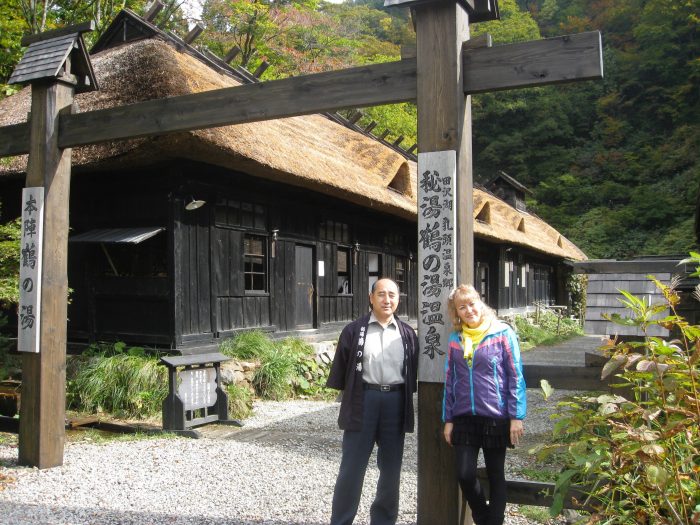
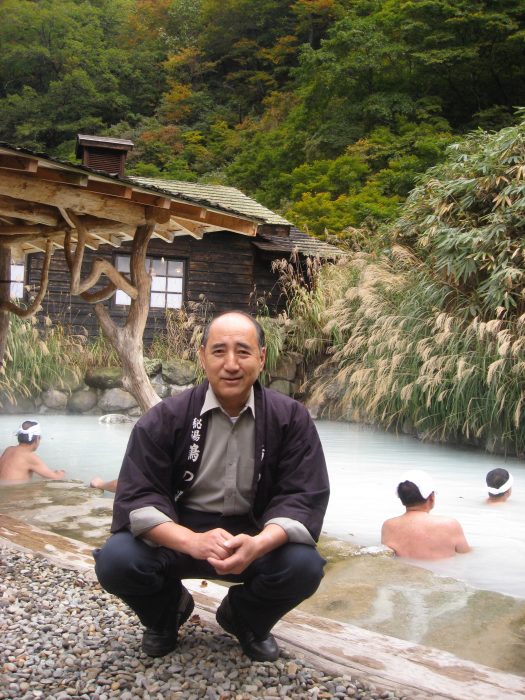
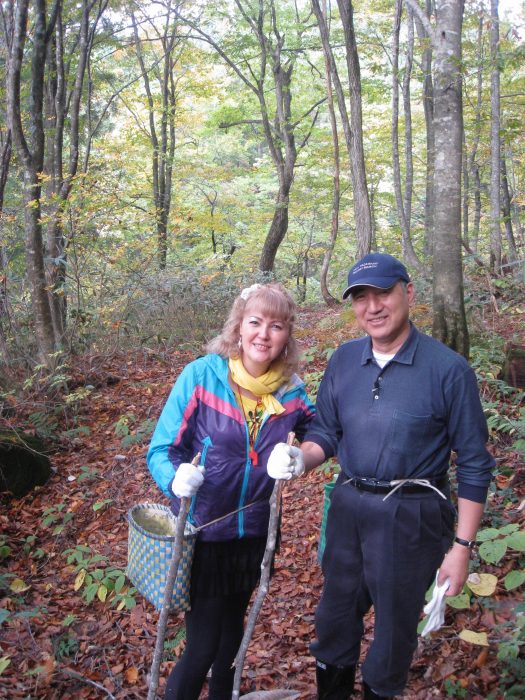
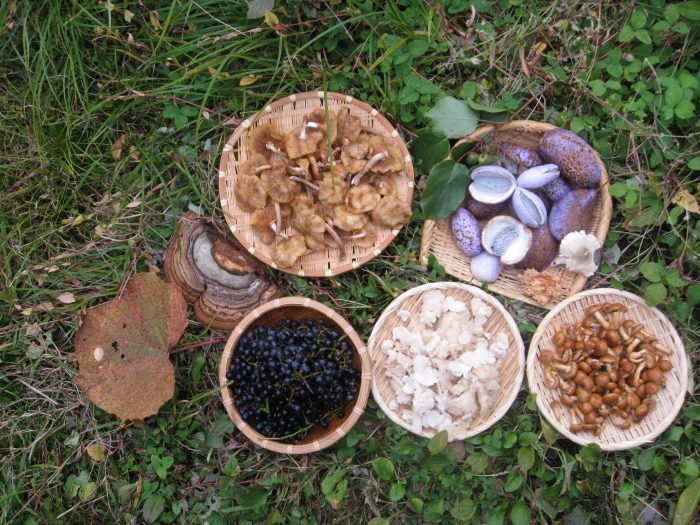
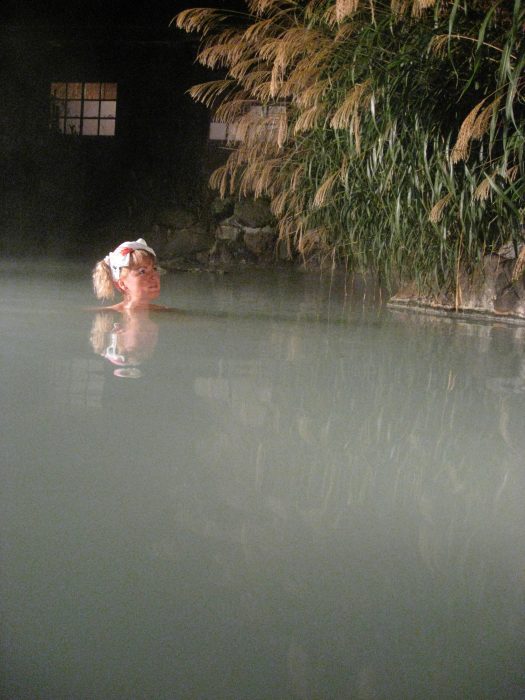
This QuoteAs long as the toilets R comfortable, people R happy — even @ nomadic conditions — Kazushi Sato